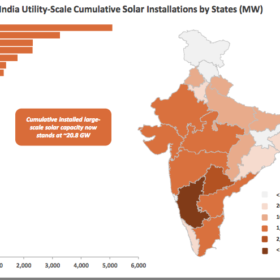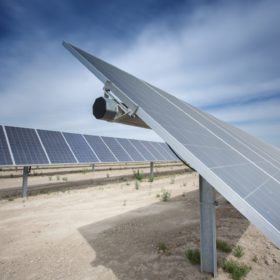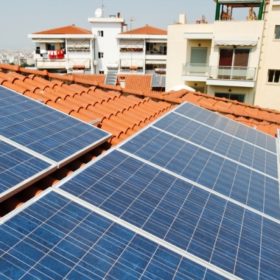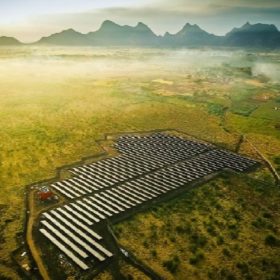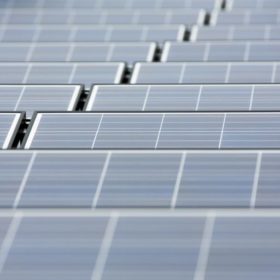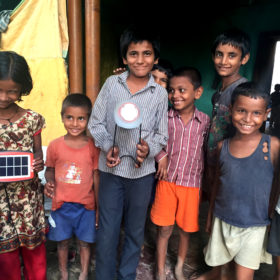India moots world’s largest solar tender – of 100 GW
If implemented, the huge tendering exercise would dwarf anything that has gone before it. Minister explains bidding will also include solar manufacturing and storage elements.
The economic case for corporate solar PPAs in India now compelling
India saw 1.8 GW of corporate solar power purchase agreements in place by the end of 2017. There was a rush of installations for PV projects due to open access waivers. The market is expected to contract slightly this year as waivers are rolled back, but there will be sustained market growth through 2023.
Minister outlines plan to become global renewables leader, at Intersolar Europe
Underlining India’s commitment to becoming the global renewable energy leader, Shri Anand Kumar, secretary of the Ministry of New and Renewable Energy, said the country plans 500 GW of capacity by 2030. He also underlined plans to become a solar and storage manufacturing hub; and said the International Solar Alliance needs to widen its membership.
Federal government removes state hurdle for renewable energy projects
The MNRE has removed a layer of bureaucracy by lifting the requirement of proposed projects to be registered with power bodies at sub-national level.
Is national 225GW renewables target achievable?
There was incredulity in some quarters as the federal government raised its renewables ambition another 22%, but the stellar performance of the past four years points to the new target being a realizable one.
New solar benchmark costs announced for off-grid, rooftop
India’s Ministry of New and Renewable Energy (MNRE) has announced the new benchmark costs for off-grid solar photovoltaic (PV) systems and rooftop solar projects for the financial year (FY) 2018-19.
India saw more utility-scale PV tenders in Q1 2018 than in entire 2017 – Bridge To India
India saw the issuance of 13 new utility-scale solar PV tenders totaling 11,945 MW in the quarter ending March 31, 2018, which is 68% more than in the entire of 2017. However, tender capacity for rooftop solar PV (greater than 1 MW in size) was down 50%, at 102 MW.
2018 global PV market to see negative growth following China backtrack
Global solar PV demand this year will be less than in 2017, on the back of China’s latest policy decision, says TrendForce. Overall, it sees new installs dropping 40% in China to 31.6 GW. The protectionist measures taken by the U.S. will also be weakened by the resulting falling module prices.
Cabinet approves Phase III of off-grid and decentralized solar PV applications programme
Continuation of the programme will help India to achieve additional 118 MWp off-grid solar PV capacity by 2020. The total project (including solar street lights, standalone solar PV plants and solar study lamps) will cost Rs 18.95 billion, of which Rs 6.37 billion will be provided as central financial assistance
Azure Power secures 25-year PPA for 75MW project in Assam
Earlier this year the state announced it would install an additional 590 MW of solar PV to meet growing energy demand. Last year Assam had a 4.2% energy deficit.

